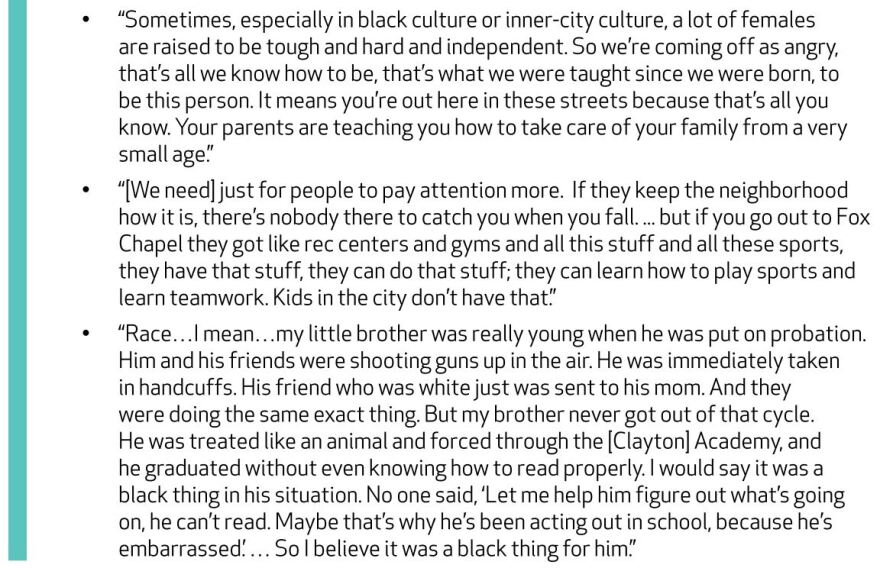Youth need more of a say in shaping the juvenile justice system they're a part of, according to a report released Monday by the Pittsburgh Foundation.
Lead researcher and senior program officer Michael Yonas said that even though they have first-hand knowledge of the system, youth voices are not taken into account.
"What we heard from the groups, but most of all from the young people, is they want more voice (and) more involvement in their experiences, in the decisions that affect their lives,” he said.

One of the biggest findings after speaking with 53 young people who participated in the eight-month study, Yonas said, is the desire to have somebody ask, "Why?"
“Why are they engaging in this behavior? Why are they skipping school? Not just respond to their behavior, but respond to the why and to get deeper into that to better understand those factors that are affecting them,” he said.
Yonas said the children had a lot to share about their experiences. Many of their comments were shared as part of broader themes, including listening; experience by race and gender; physical and sexual abuse; criminalization in schools and communities; access to caring and supportive adults; access to mental health services; institutional neglect; and their hopes and dreams.
For example:

The 2015 annual report from the Allegheny County Office of Juvenile Probation found 3,328 young people were referred to the juvenile justice system that year. Of those referred, 972 youth were placed in secured detention, a 15 percent decrease from 2014, while 704 youth were placed in electronic home monitoring/home detention, a 14 percent increase from 2014. On local and national levels, youth of color are disproportionately represented in the system. About 10 percent of children age 10 to 17 in Pittsburgh Public Schools have had some involvement with the system, and 73 percent of referrals were for nonviolent crimes like drugs, theft or failing to pay court fines.

The Pittsburgh Foundation report attributes those figures directly to poverty and near-poverty conditions, as well as structural racism.
“If we mean to put an end to the school-to-prison pipeline, reform efforts must include listening to youth and involving them fundamentally in shaping programs and policy actions,” said Maxwell King, foundation president and CEO. “The most valuable insights come from young people willing to offer unflinching descriptions of their lives against a backdrop of poverty and the juvenile justice system.”
The report's authors make several recommendations, including addressing the disproportionate number of youth of color in the system; involving youth in reforming school culture, curriculum and disciplinary practices; and engaging youth as advocates for their peers who may be at risk of entering the system.
Yonas said the primary goal of the report is to better inform grant needs and opportunities, identify areas for research follow-up and recommend policy changes.
The report is the first research initiative of 100 Percent Pittsburgh, an effort of the Pittsburgh Foundation to address inequality in the region.
90.5 WESA is funded, in part, by The Pittsburgh Foundation.




